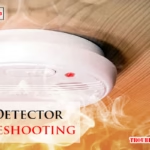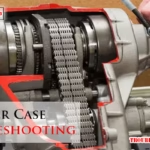Is your air conditioner acting up just when you need it most? Whether it’s blowing warm air, making strange noises, or refusing to turn on altogether, dealing with a malfunctioning AC can be frustrating—and downright uncomfortable.
But before you start sweating over expensive repairs or replacements, take a deep breath. You might be surprised how many common issues you can fix on your own with the right guidance. In this troubleshooting guide, we’ll walk you step by step through diagnosing and solving some of the most frequent air conditioner problems.
By the time you’re done reading, you’ll feel confident tackling those pesky issues and keeping your home cool and comfortable. Ready to take control of your AC woes? Let’s get started!
Common Ac Issues
Air conditioners can encounter issues that disrupt their performance. Identifying these problems early can save time and money. Some issues are easy to fix, while others need professional help. Below are common AC problems and their possible causes.
1. AC Not Cooling Properly
If your AC isn’t cooling, check the thermostat settings. Ensure it’s set to “cool” mode and the temperature is correct. Dirty air filters can restrict airflow and reduce cooling. Low refrigerant levels may also cause poor performance. In such cases, you’ll need a technician to refill it.
2. AC Making Unusual Noises
Loud or strange noises can indicate worn-out components. Rattling sounds may mean loose screws or parts. A buzzing noise could suggest electrical issues. Always turn off the unit before inspecting it for safety.
3. AC Leaking Water
Water leaks often occur due to a clogged drain line. Dirt and debris can block the condensation line, causing overflow. Cleaning the drain line can resolve this issue. Another cause could be a frozen evaporator coil. Let the ice melt and check for airflow problems.
4. AC Blowing Warm Air
Warm air from the AC can signal a refrigerant leak. Check the air filter and replace it if dirty. Inspect outdoor units for debris blocking airflow. If these steps don’t help, call a professional for inspection.
5. AC Constantly Turning On and Off
This issue, called short cycling, can damage the compressor. A dirty air filter, thermostat issues, or low refrigerant levels may cause this. Cleaning or replacing filters can often resolve the problem.
Ac Not Turning On
Is your air conditioner refusing to turn on? Don’t panic; it’s a common issue. Understanding the possible causes can save time and money. Many times, the problem is something simple that you can fix yourself. Let’s dive into the key areas to check when your AC won’t start.
Check Power Supply
The first step is to ensure the AC is receiving power. Inspect the power cord for damage. Check if it’s securely plugged into the outlet. Sometimes, loose connections can prevent the unit from starting. Verify that the outlet is functioning by plugging in another device. If it doesn’t work, the outlet may need repair.
Inspect Thermostat Settings
The thermostat controls when the AC turns on. Confirm the thermostat is set to cooling mode. Ensure the temperature is set lower than the current room temperature. Replace the thermostat batteries if they are dead. A malfunctioning thermostat can cause the AC to remain off.
Examine Circuit Breaker
A tripped circuit breaker may stop your AC from turning on. Go to your electrical panel and locate the breaker for the AC unit. If it’s flipped to the “off” position, reset it to “on.” If the breaker trips again, there could be an electrical issue. Contact an expert for further inspection.
Insufficient Cooling
Is your air conditioner struggling to keep your home cool? Insufficient cooling is a common problem that can leave you feeling frustrated, especially during those sweltering summer months. The good news is, most cooling issues can be resolved with a few simple troubleshooting steps.
Clean Air Filters
Dirty air filters are one of the most common culprits behind weak cooling performance. When filters are clogged with dust and debris, they block airflow, making it harder for your AC to do its job. A quick fix is to remove the filters, give them a thorough cleaning, or replace them if needed.
Experts recommend cleaning or replacing your filters every 1-3 months, depending on usage. If you have pets or live in a dusty area, you may need to do it more often. Think of it as giving your AC a breath of fresh air—it works more efficiently and saves energy.
Inspect Refrigerant Levels
Low refrigerant levels can significantly impact your AC’s cooling ability. Refrigerant is what absorbs heat from your home, so if it’s low, the system can’t cool effectively. Check for signs like warm air from the vents or frost on the coils—it could indicate a refrigerant leak.
If you suspect a refrigerant issue, call a licensed technician to top it off and fix any leaks. Handling refrigerants on your own can be risky and may void your warranty. A professional will also check for underlying issues that caused the leak in the first place.
Check Vents And Ducts
Blocked or leaky ducts can prevent cool air from reaching certain areas of your home. Walk around and inspect your vents—are any of them closed or obstructed by furniture? Make sure all vents are open and free of blockages to allow optimal airflow.
For ductwork, look for visible damage or unusual sounds like whistling, which may signal a leak. Sealing leaks with duct tape or hiring a professional to repair damaged ducts can restore proper cooling. Even small fixes can make a noticeable difference in your comfort.
Are you still noticing insufficient cooling after trying these steps? It might be time to schedule a professional maintenance check. Keeping your AC in top shape ensures you stay cool without breaking a sweat—or your wallet.
Strange Noises
Strange noises from an air conditioner can signal potential issues. Ignoring them may lead to costly repairs. Identifying the type of sound can help pinpoint the problem. Each noise has a specific cause and solution. Below, learn how to handle common sounds like rattling, hissing, or grinding.
Identify Rattling Sounds
Rattling sounds often come from loose parts or debris. Check the fan blades for obstructions like sticks or leaves. Tighten any loose screws or bolts on the unit. Ensure the air conditioner is on a flat, stable surface. If the noise persists, call a professional to inspect internal components.
Address Hissing Or Whistling
Hissing or whistling can indicate a refrigerant leak. Low refrigerant levels affect cooling efficiency. Inspect the refrigerant lines for visible damage or leaks. Do not attempt to fix refrigerant issues yourself. Contact a certified technician to handle leaks or recharge the system.
Handle Grinding Or Screeching
Grinding or screeching noises suggest a motor or fan issue. The motor bearings may need lubrication. Turn off the unit immediately to avoid further damage. Screeching could also mean a worn-out fan belt. Replace the belt if it’s damaged or frayed. Seek professional help for motor repairs or replacements.
Water Leaks
Water leaks are a common issue with air conditioners. They can lead to costly repairs if ignored. Understanding the causes can help you fix the problem quickly. Below are key areas to inspect and troubleshoot.
Unclog Drain Line
A clogged drain line is a frequent cause of water leaks. Dirt and debris can block the line, stopping water from draining. Use a wet/dry vacuum or a plumber’s snake to clear the blockage. Regular cleaning prevents future clogs.
Inspect Drain Pan
The drain pan collects excess water from the cooling process. Cracks or damage in the pan can cause leaks. Check for visible wear and replace the pan if necessary. Ensure the pan is installed correctly to avoid spills.
Check For Frozen Coils
Frozen coils can cause water to overflow. Low refrigerant levels or poor airflow are common reasons for freezing. Inspect the coils and clean any dirt buildup. If the coils remain frozen, seek professional assistance to recharge refrigerant.
Ac Blowing Warm Air
Is your air conditioner blowing warm air instead of cooling your space? This issue can be frustrating, especially during hot days. Several factors could cause this problem, but the good news is that many of them are fixable. Below is a simple troubleshooting guide to help you identify and address the issue effectively.
Check Thermostat Mode
Start by checking the thermostat’s settings. Ensure it’s set to “Cool” mode. Sometimes, it may be accidentally switched to “Heat” or “Fan.” Verify the temperature setting and ensure it’s lower than the current room temperature. If the settings seem correct but the air is still warm, there could be another underlying issue.
Inspect Compressor
The compressor is a critical part of your AC system. It works to circulate refrigerant and cool the air. Head outside and listen to the compressor unit. If it’s not running, it may be damaged or disconnected. Clear any debris around the unit to ensure proper airflow. If the compressor hums but the air remains warm, professional inspection might be needed.
Evaluate Refrigerant Levels
Low refrigerant levels can significantly affect cooling performance. A refrigerant leak is often the cause of warm air. Check for any visible signs of leaks near the outdoor unit. Refrigerant issues require a licensed technician to refill or repair leaks. Operating your AC with low refrigerant can cause further damage.
Uneven Cooling
Uneven cooling can make your home uncomfortable during hot days. If your air conditioner struggles to cool rooms evenly, there might be underlying issues. Addressing these problems can improve efficiency and restore comfort.
Inspect Ductwork
Faulty ductwork often leads to uneven cooling. Check for visible cracks or holes in the ducts. Leaks can cause cool air to escape, leaving some rooms warmer. Ensure the duct connections are tight and properly sealed. If you find damage, consider professional repairs to restore optimal airflow.
Check For Blocked Vents
Blocked vents can restrict airflow and lead to uneven cooling. Walk around your home and inspect all vents. Make sure furniture or curtains are not obstructing them. Dust buildup can also block airflow, so clean the vents with a vacuum. Keeping vents clear helps air circulate evenly.
Balance Airflow
Uneven cooling may result from unbalanced airflow. Adjust the dampers in your air conditioning system to redirect air to warmer areas. These dampers are often located near the air ducts. If certain rooms consistently receive less air, try partially closing dampers in cooler areas. Proper airflow balance ensures better temperature distribution.

Regular Maintenance Tips
Maintaining your air conditioner doesn’t have to feel overwhelming. Regular upkeep ensures your unit performs efficiently and lasts longer. If you’re unsure where to start, these simple tips will help keep your AC in top shape.
Schedule Filter Replacements
Dirty filters can choke your AC’s airflow and make it work harder. This not only increases energy bills but also shortens the unit’s lifespan. Replace your filter every one to three months, depending on usage and whether you have pets or allergies.
Not sure if it’s time for a replacement? Hold the filter up to a light—if you can’t see through it, it’s time for a new one. Keep spare filters handy to avoid delays when it needs changing.
Clean Coils Regularly
The coils inside your air conditioner help cool your home by transferring heat. Dust and debris can build up and reduce their efficiency. Cleaning them twice a year—ideally before summer and after the season ends—keeps your AC running smoothly.
Use a soft brush or coil cleaner to gently remove dirt. If you notice stubborn buildup, a bit of warm water and mild detergent works wonders. A clean coil means better cooling and lower energy costs.
Inspect Electrical Connections
Loose or damaged wires can lead to performance issues—or worse, safety hazards. Take a moment to check your AC’s electrical connections. Look for signs of wear, like frayed wires or discoloration.
If something looks off, don’t ignore it. Call a professional to address the issue before it becomes a bigger problem. A simple inspection can save you from costly repairs down the road.
When was the last time you gave your AC some attention? Regular maintenance might feel like a small task, but it makes a big difference. Start with these tips and see how much better your air conditioner performs.
When To Call A Professional
There’s nothing worse than your air conditioner acting up in the middle of a scorching summer day. While some minor issues can be fixed with a little DIY effort, others require the expertise of a professional. Knowing when to make that call can save you time, money, and stress in the long run. Let’s break it down.
Persistent Issues
If your air conditioner keeps cycling on and off or struggles to cool your home even after basic troubleshooting, it’s time to call a professional. Persistent issues often indicate underlying problems that DIY fixes can’t resolve. A licensed technician can identify if it’s an electrical issue, a failing component, or something more complex.
Don’t wait too long. Ignoring repeated problems can lead to bigger headaches, like a complete system breakdown. A quick call now may prevent a costly repair later.
Major Repairs
Replacing a compressor or fixing a motor is not a weekend project. These are major repairs that require technical expertise and specialized tools. Attempting them yourself could void your warranty or even damage the unit further.
Think of it this way: Would you try to fix your car’s engine with no experience? Probably not. Trust the pros to handle major fixes, and rest easy knowing it’s done right.
Refrigerant Handling
Did you know it’s illegal in many places to handle refrigerant without proper certification? Refrigerants are hazardous substances that require safe and precise handling. If your AC is leaking refrigerant or needs a recharge, leave it to a certified technician.
Improper handling can harm both you and the environment. Plus, a pro can ensure your system is recharged to the correct level for peak efficiency.
So, next time your AC gives you trouble, ask yourself: Is this something I can safely and confidently fix? If the answer is no, it’s worth picking up the phone and calling an expert. Your comfort—and your wallet—will thank you.

Conclusion
Regular maintenance keeps your air conditioner running smoothly. Troubleshooting common issues saves time and money. Always check filters, thermostat, and power supply first. Strange noises or smells could signal deeper problems. For complex repairs, call a professional technician. Ignoring issues may lead to costly breakdowns.
A well-functioning air conditioner ensures comfort during hot days. Stay proactive and address problems early. This guide helps you handle basic troubleshooting with ease. Keep your home cool and comfortable all season long.






